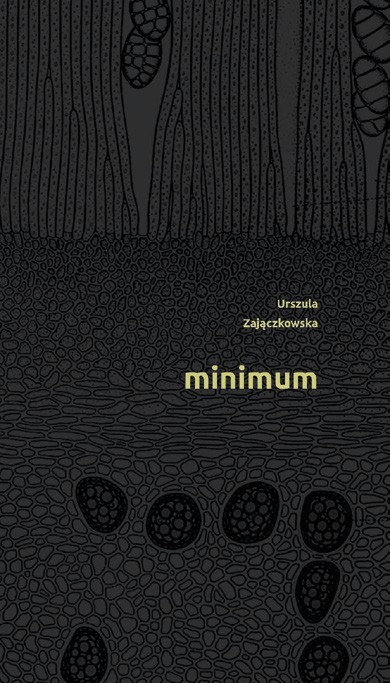Poems that disrupt our sense of comfortable wellbeing

church. rain
you see, I didn’t actually come here to give thanks for your ever so mildly pleasing creative output, which only tires, tires me terribly.
and still nothing, however, nothing. because I here, now only sit around,
waiting
for the cloud to pass, and I will go out quietly
leaving you completely alone
with that great mystery of yours.
tall trees
for Sherwin Carlquist
it really is moving, it’s moving
that you do not see that it is you after all
who opened up the insides of trees, completely new galaxies, milky ways and distant heavenly bodies.
and you still take trips there constantly, any time you feel like it and as you like it,
(though it seems you’re most keen on walking there).
and this is how my friend
I think right now, swinging from one of those branches of
yours.
skeleton
it so happens sometimes at night, that my skeleton
disrupts my sleep
with the crunching of the discs in my spinal column, as my head turns to the left or the right,
it must be loud when all else is quiet.
I don’t want to go see any doctors about it, don’t want to
go chasing it off.
I remember when you said that you really admire those who study tall trees,
because you only ever studied up close
those which were within easy reach of your hands.
Instead, I open my eyes and say to it:
“Yeah, I know, I remember.”
Translated by Marek Kazmierski
Poems that disrupt our sense of comfortable wellbeing

Translation rights: Urszula Zajączkowska, ula@botanik.pl
The poems found in minimum, Urszula Zajączkowska’s latest collection of poetry, disrupt our sense of comfortable wellbeing which insists we look at the world around us with a sense of superiority, that we think of ourselves human beings as the epicenters of the universe. Meanwhile, the poet herself rejects this anthropocentric perspective, seeming to say that we, people, are merely one of the components of nature, of life which everywhere falls prey to life, as in her poem cat dog fly and me (sacred bodies). Even the smallest fragment of matter makes room for one that is smaller, the miracle of metamorphosis omnipresent: “the yolk in the shell will produce blood, feathers and eyes, / and any earthworm fragment will always be reborn as another earthworm” (minimum).
Zajączkowska tends to present Nature in her poems as generous and sparing, linking the end and the next beginning, life and death, us and creatures without individual names. Zajączkowska could be said to echo William Blake, wanting to see the world in a grain of sand. It’s enough to have your eyes wide open… This teaches us sensitivity and humility with regards to that which exists, but above all allows us to change the angle we see things from and turn towards the invisible. That is when we will see that every green leaf is covered in myriads of creatures, and discover inside trees “completely new galaxies, milky ways and distant heavenly bodies.” (tall trees).
But how to talk of that which we try to perceive? Do we have the appropriate lexicon? The originality of Zajączkowska’s poetic imagination arises out of the constant tension between the language of science and lyricism, the precision of anatomical etchings and risky metaphors. Well, we do live in dramatic times after all. For “we still don’t have / a good language, / a precise language, / so we formulate sentences / mainly with the eyes” (jungle today – jungle tomorrow).
Karol Alichnowicz, translated by Marek Kazmierski
Selected samples
She climbed her first peaks in a headscarf at a time when women in the mountains were treated by climbers as an additional backpack. It was with her that female alpinism began! She gained recognition in a spectacular way. The path was considered a crossing for madmen. Especially since the tragic accident in 1929, preserved … Continue reading “Halina”
First, Marysia, a student of an exclusive private school in Warsaw’s Mokotów district, dies under the wheels of a train. Her teacher, Elżbieta, tries to find out what really happened. She starts a private investigation only soon to perish herself. But her body disappears, and the only people who have seen anything are Gniewomir, a … Continue reading “Wound”
A young girl, Regina Wieczorek, was found dead on the beach. She was nineteen years old and had no enemies. Fortunately, the culprit was quickly found. At least, that’s what the militia think. Meanwhile, one day in November, Jan Kowalski appears at the police station. He claims to have killed not only Regina but also … Continue reading “Penance”
The year is 1922. A dangerous time of breakthrough. In the Eastern Borderlands of the Republic of Poland, Bolshevik gangs sow terror, leaving behind the corpses of men and disgraced women. A ruthless secret intelligence race takes place between the Lviv-Warsaw-Free City of Gdańsk line. Lviv investigator Edward Popielski, called Łysy (“Hairless”), receives an offer … Continue reading “A Girl with Four Fingers”
This question is closely related to the next one, namely: if any goal exists, does life lead us to that goal in an orderly manner? In other words, is everything that happens to us just a set of chaotic events that, combined together, do not form a whole? To understand how the concept of providence … Continue reading “Order and Love”
The work of Józef Łobodowski (1909-1988) – a remarkable poet, prose writer, and translator, who spent most of his life in exile – is slowly being revived in Poland. Łobodowski’s brilliant three- volume novel, composed on an epic scale, concerns the fate of families and orphans unmoored by the Bolshevik Revolution and civil war and … Continue reading “Ukrainian Trilogy: Thickets, The Settlement, The Way Back”























































































































































































































































































